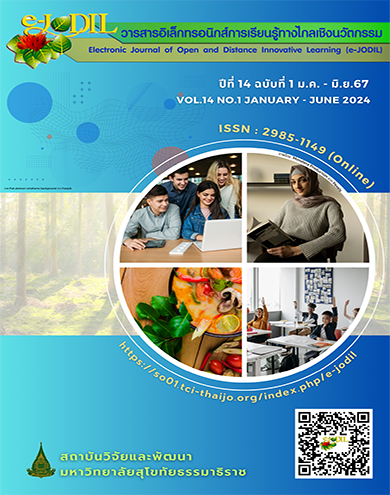Contract Farming for The Chicken Farming Business in Thailand
Main Article Content
บทคัดย่อ
The objectives of this study were to 1) study the situation and role of contract farming in Thailand. 2) analyze SWOT of the chicken farming business in Thailand. Methodologies are both descriptive research using secondary data and field surveys by in-depth interviews with the relevant parties including farmers, private companies and academics through specific sampling.
The results of this study showed that 1) the contract farming situation in Thailand tends to expand continuously and plays an important role in the production of agricultural products for export and employment. In addition, the development of contract farming is largely driven by big corporation investments such as Charoen Pokphand Foods, and Betagro Group. Most of the contract farming value is concentrated in a few large private companies. In the past, contract farming has often been in conflict between contract parties and small farmers were often at a disadvantage because of their low bargaining power. However, when the government issued the Contract Farming Promotion and Development Act (2017), it resulted in more fair protection for contract parties as well as being more transparent and being overseen by the government, thus allowing the problems to decline. 2) SWOT analysis revealed that its strength is the parties have a long experience in raising chickens. In addition, private companies have modern technology and transfer it to farmers. Therefore, the production in the contract system is efficient and meets acceptable standards. The weaknesses, there are still some unfair contracts. Especially small chicken farmers who do not have much choice. For the opportunity, it is found that the export market for chicken and its products continued to expand. It has a positive impact on chicken farming business while the main obstacle is the rising cost of chicken feed due to inflationary pressure.
Downloads
Article Details

อนุญาตภายใต้เงื่อนไข Creative Commons Attribution-NonCommercial-NoDerivatives 4.0 International License.
บทความ ข้อความ ภาพประกอบ ตารางประกอบ ที่ตีพิมพ์ในวารสารเป็นความคิดเห็นและความรับผิดชอบของผู้เขียนแต่เพียงผู้เดียว ไม่เกี่ยวข้องกับมหาวิทยาลัยสุโขทัยธรรมาธิราชแต่อย่างใด
บทความที่เสนอพิจารณาในวารสาร e-JODIL ต้องเป็นบทความที่ไม่เคยส่งไปลงพิมพ์ เผยแพร่ หรืออยู่ระหว่างการพิจารณาของวารสารอื่น
กองบรรณาธิการขอสงวนสิทธิ์ในการพิจารณาและตัดสินการตีพิมพ์บทความในวารสาร
เอกสารอ้างอิง
Ariyasoonthorn, C. (2012). Social and Economic Adaptation of Farmer and Community under Contract Farming: A Case Study of Broiler Farming in Thaytalard, Muang District, Lopburi Province. Academic Services Journal, 23(2), 89-104.
Contract Farming Promotion and Development Act 2017. (2017, May 22). Government Gazette. No.134 Section 56 A, page 1-15.
Department of Trade Negotiations. (2022). Food Innovation and Digital Technology. Retrieved from https://www.depa.or.th/th/article-view/Food-innovation-and-digital-technology
Office of Agricultural Economics, Krungsri Research. (2019). Frozen and Process Chicken. Bangkok: Office of Agricultural Economics, Krungsri.
Minot, N., & Ronchi, L. (2014). Contract Farming: Risks and Benefits of Partnership between Farmers and Firms. Washington, DC: World Bank
Ouyyanont, P., Wanaset, A., & To-arj, R. (2014). Contract Farming and Income Stability of Farmers: A Case of Chicken and Pig Raising in Central Region. Nonthaburi: Sukhothai Thammathirat Open University.
Sriboonchitta, S., & Wiboonpoongse, A. (2008). Overview of Contract Farming in Thailand: Lessons Learned. Retrieved from https://www.adb.org/publications/overview-contract-farming-thailand-lessons-learned
Tasanakunphan, T. (2012). Deadly Loop to Farmer and Contract Farming Tragedy. Retrieved from https://mgronline.com/specialscoop/detail/9550000081820
Wanaset, A., & Ouyyanont, P. (2018). Cooperative Contract Farming for Income Stability of Small Scale Farmers in Thailand. Business Administration and Economics Review, 14(1), 146-160.
Wikipedia. (n.d.). SWOT Analysis. Retrieved from https://en.wikipedia.org/wiki/SWOT_analysis#/media/File:SWOT_en.svg


